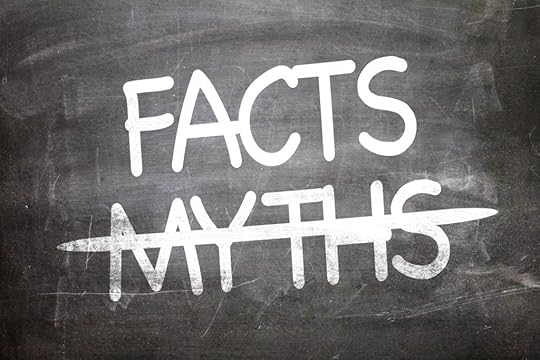Myth-Busting
I’ve been contemplating today’s blog post. I have a couple of ideas, but they’re kind of long, and I don’t have much time (since I’m full-steam-ahead trying to finish Book Two of the Stonegate Series), so I was just going to write a kind of quick-and-dirty post, and then a Goodreads gift fell into my lap.
I wrestled with the decision of leaving the world of traditional publishing a long time ago. Objects in Mirror was traditionally published in June 2013, and I indie-pubbed Appaloosa Summer in June 2014 – so it was around Christmas 2013 that I really took a long time, and thought hard and decided to go it on my own.
For me, I’ve almost forgotten there’s another way to publish.
But some people … well, for some people traditional publishing is still where it’s at. Which, for them, is fine. As long as they’re informed. As long as they’re not operating on myths.
If you want to hear more about what I call the myths of mainstream publishing, there’s a whole (long!) podcast here which you can listen to here (scroll down – it’s under the audiobook podcast).
If you follow this link, you’ll see I address three main myths – 1) the myth of choice, 2) the myth of support, and 3) the myth of quality.
The review I read today, from a new reader on Goodreads busted the myth of quality right open. Here’s what she said about Appaloosa Summer:
It was such a beautiful book, and having bought a lot of new books that have been frustrating to actually read because the quality was so low (looking at you, OUTLANDER paperback Diana gabaldon-shame on you!Pages as thin as a bible), I was surprised and so happy with the pages, the size of print, the cover is stunning and in my head I was thinking, yes all three on my bookshelf please!
But … no … how can that be possible? Diana Gabaldon’s books are published by Delacorte Press – an imprint of Penguin Random House – their quality must be better than a lowly indie-pubbed book … right? Well, one reader doesn’t think so.
Further on the quality myth, and debunking another big myth – and this is an important one, so I’m bolding it – readers don’t care who published a book, she went on to write:
The book’s publishers have done a super job as the book was such a pleasure to read from a quality perspective that I would have bought another even if the content had not been so amazing! No headaches due to the font size and spacing, and no accidental page turns due to the quality paper. Wonderful. Five star book! Thank you Tudor!
This reader doesn’t know that when she thanks me, she’s also thanking “the book’s publishers” – and that’s fine. Why should she care? Other than, obviously, this is somebody who takes quality seriously and she thinks the publisher of a book should also take quality seriously, and is bothered when they don’t. And, as the publisher of my own books, I do take quality seriously.
I wasn’t surprised to hear my book’s quality held up to (or surpassed) that of traditional presses. Ingram, CreateSpace, and other services do make beautiful products and I take pains to ensure the files I send them are truly print-ready. There’s no reason why an indie-pubbed book can’t be as beautiful, or far more beautiful than any book on the market.
But it is nice when a reader notices, even nicer when she takes the time to acknowledge it in writing, and fantastic when it puts one more nail in the “quality” myth when it comes to indie vs. trad-pubbing.




